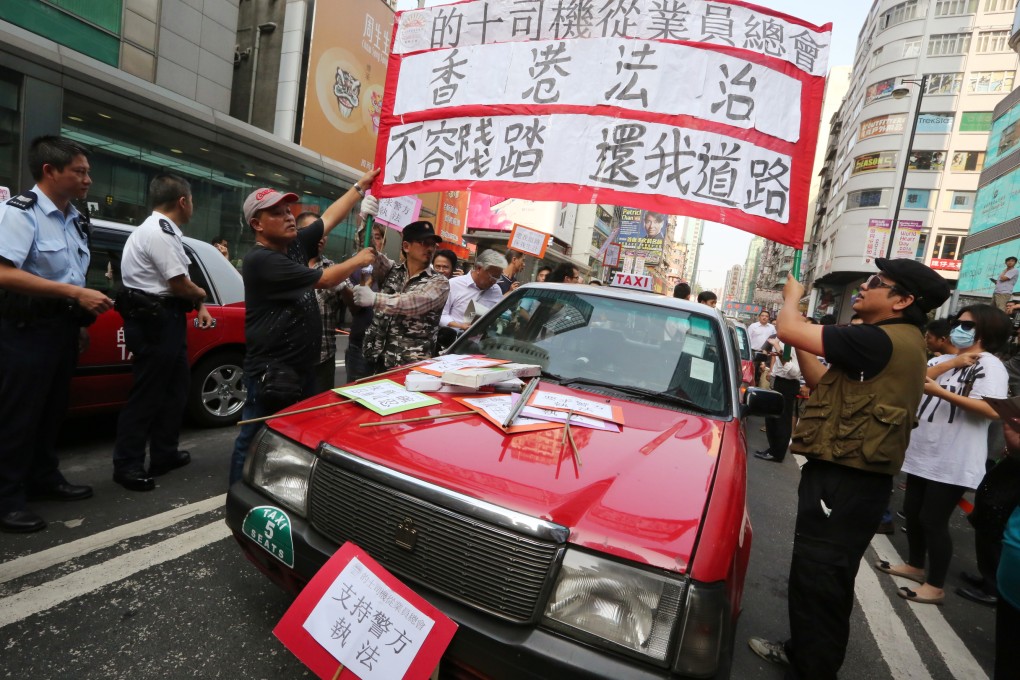Advertisement
As I see it | 15 minutes with Mr Lau: One taxi driver’s take on his Occupy 'woes'
Reading Time:3 minutes
Why you can trust SCMP

I finished dinner in Causeway Bay and hailed a taxi outside the Excelsior Hotel. The driver was a middle-aged man with grizzled hair and a penchant for small talk. Small talk is not my thing, much less with a stranger at the end of a long day. As I was disentangling my earphones to signal my desire for a quiet ride, the driver said something that piqued my interest.
“Look at this mess,” he complained, pointing at the snarled traffic on Gloucester Road. “We had 79 days of heaven and now we are back in hell.”
I wasn’t sure if I had heard him right. My impression was like everyone else’s – that taxi drivers were upset with the Umbrella Movement because main arteries like Harcourt Road and Nathan Road had been occupied. And for those who are in the business of moving people around, blocked streets mean bad business.
“How do you mean?” I probed, glancing at his ID on the dashboard. His name was Lau.
“I mean business was much better during the protests,” Mr Lau declared.
Advertisement
Select Voice
Choose your listening speed
Get through articles 2x faster
1.25x
250 WPM
Slow
Average
Fast
1.25x
